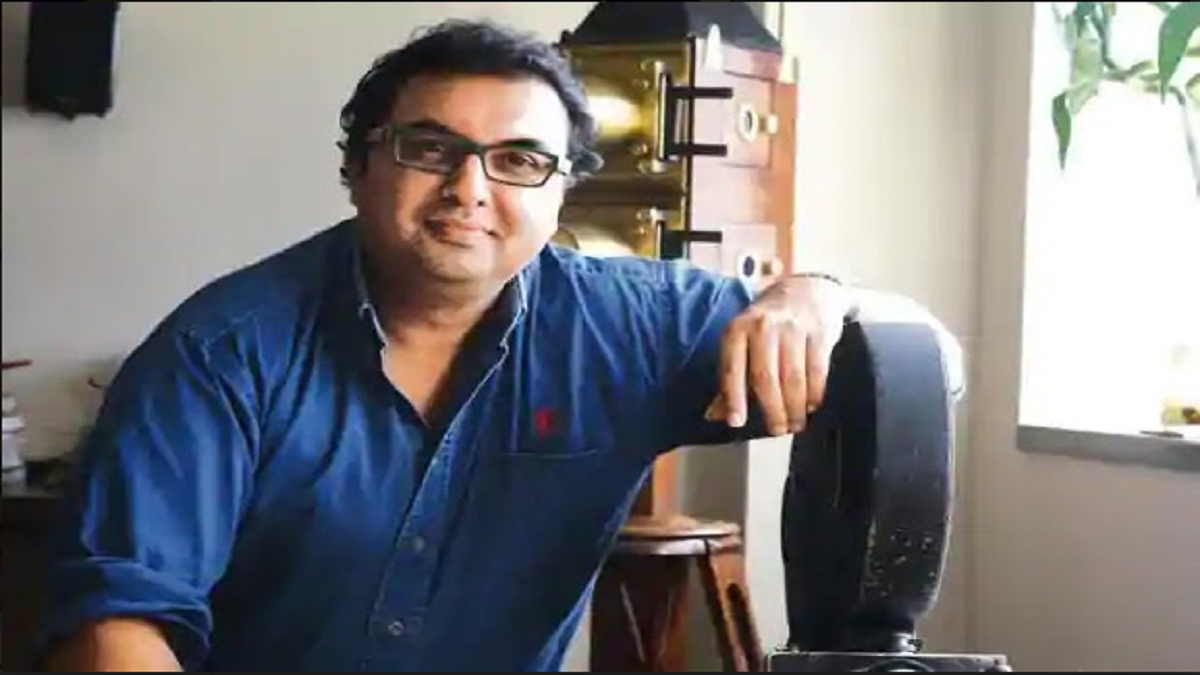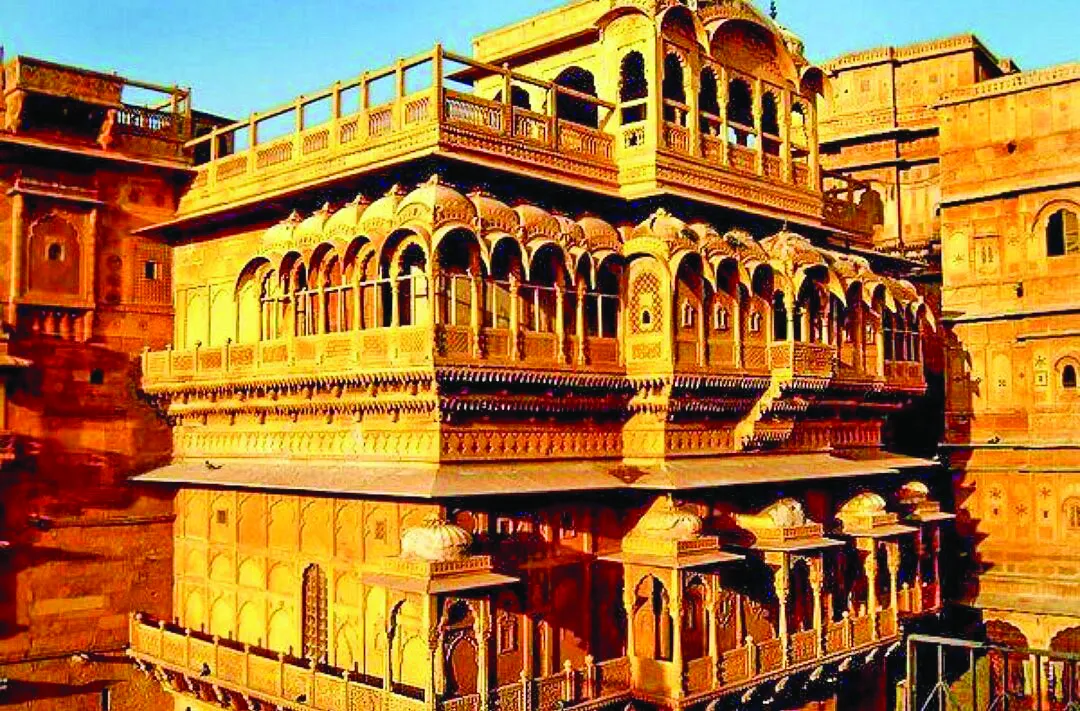Summer vacations during his childhood years meant a visit to his maternal grandmother in Dumraon, where the two spent their time indulging in their love for cinema. Those were princely times in which, his grandmother wielded her regality by booking the entire theatre hall for a private screening of two. Seated in the stalls, the grandmother and grandson would savour cinematic montages all day long. The star-struck little boy was captivated in absolute wonder as Pakeezah’s Meena Kumari scintillated to “Inhi Logon Ne”. His liberties extended his small hands towards the film cupboard, which the projectionist would open up for him to pick from a series of Charlie Chaplin, Laurel and Hardy, John Ford and Frank Capra films.
Even today, he fondly recalls the nostalgic smell that emanated from the cupboard. This early interaction with moving images drove Shivendra Singh of Dungarpur to become one of India’s pioneering film veterans and its foremost film conservator. With a legacy that includes nearly 600 commercials, documentaries and short films, two national accolades and the foundation of India’s very first conservatory initiative for films, Shivendra’s journey makes for a compelling story of an extraordinarily spirited man, who dared to pursue his dreams.
Hailing from a lineage of Oxonians and Cantabrigians, the professional expectations held out of Shivendra maintained their predicted loftiness. His exemplary record as a student of Delhi’s St. Stephens’ College paved a likely path towards law. Back in the days, filmmaking was not frowned upon so long as it remained a hobby in the mere shadows of a conventionally approved career. So when Shivendra voiced his dream of becoming a professional filmmaker, his family’s vehement disapproval came as no surprise.
But just then, there emerged a silver lining that would drive away the young man’s despair. His uncle, the notable cricketer Raj Singhji of Dungarpur invited him to pursue his struggles in Mumbai and proffered him his shelter with open arms. In reminiscence of those days, Shivendra says, “I came to Mumbai to assist Gulzar Saheb. For the sake of my father’s wishes, I enrolled at the Government Law College, although I didn’t attend a single lecture there.”
Upon the advice of Gulzar Saheb, Shivendra departed Mumbai for his film scholarship to Pune’s FTII (Film and Television Institute), which placed him under the mentorship under India’s greatest film archivist — P.K. Nair. This would bear resonance with the latter half of his career in film conservation, but he only arrived there after tedious years of hard work and struggle. At 23, the fresh FTII graduate was offered his big break in a known production’s multi-starrer, which also happened to be music maestro A.R. Rahman’s first Hindi film. But before he could fully rejoice this opportunity, financial impediments stalled the project mid-way. Fate seemed to have other plans for Shivendra, as the following six years would come to prove. “I had no financial assistance from my parents and had to live hand-to-mouth, living off the generosity of my uncle and friends, who gave me a roof over my head. It was perhaps the hardest time of my life, but I stuck it out”, he says.
One day, Shivendra’s unflinching patience and perseverance encountered his first break in the form of a Lux soap promo. An absolute lack of advertisement shooting notwithstanding, he took the plunge and created history. Soon after, in 2000 he launched his very own production house, titled Dungarpur Film, which waddled through its initial years with hit-and-tries for Shivendra, who was still only learning finer nuances of the craft. Then, a Vim bar commercial starring Rajpal Yadav and Rimi Sen formally launched him into the world of advertisement films, where he became an artist well reputed for his natural style, eye for casting and detailing. Dungarpur Films then became one of the most successful production houses, winning him several awards for his work.
Shivendra attended a cinematic festival in Bologna, Italy, in 2009, which exclusively dedicated itself to preserving and restoring films. It was here that he noticed India’s hapless absence despite being the largest film-producing nation in the world. There wasn’t a single Indian film to be screened at this festival, and Shivendra returned pensive and fixated on changing this. By virtue of being the erstwhile Director of the National Film Archive of India, P.K. Nair guided his erstwhile student to Pune’s film archive vaults. He was stunned at the dismal condition in which India’s most prized films were kept. Their unfavourable temperature conditions had caused the films to emanate a negligent odour of decay.
“Despite the fact that we have been making films for over a hundred years and that we are currently the largest and most diverse film-producing nation in the world, making close to 2,000 films a year in 36 languages, our record of film preservation is abysmal. We made 1,700 silent films of which just about five or six complete films and about 15 films in fragments survive. Our first talkie, Alam Ara (1931) is lost as are most of the first talkies in other languages. By the 1950s, we had lost almost 70 percent of our film heritage and we continue to lose more every day — even films as recent as Mansoor Khan’s Quayamat Se Quayamat Tak (1988) and later films. Many films were sold for silver, others lost in fires and most of all due to apathy and neglect”, he explains.
His intention to preserve films was further encouraged by the Bachchans, and Shivendra finally established the Film Heritage Foundation (FHF) in 2014, which continues to remain India’s only non-governmental organisation dedicated towards the preservation of films. In his words, “FHF is dedicated to supporting the conservation, preservation and restoration of the moving image and to develop interdisciplinary educational programs that use film as an educational tool and create awareness about the language of cinema.”
Ever since then, Shivendra has been conducting workshops to aptly train film archivists and has even solicited the mentorship of the highly acclaimed Hollywood director, Christopher Nolan. Moreover, he has carefully cultivated a film collection across the 8, 16 and 35 mm spectrums in a temperature-controlled storage facility. It ensures the periodical checking, cleaning and winding up of its collections, with inspection reports that record the condition of its stored films. He has successfully published two books, From Darkness Into Light (2015) and Yesterday’s Films for Tomorrow (2017), compiling the topics of film preservation and writings of P.K. Nair respectively.
Today, FHF has Amitabh Bachchan serving as its brand ambassador and is governed by a diverse and credible board of advisors, including veterans such as Shyam Benegal, Gulzar, Jaya Bachchan, Kumar Shahani, Kamal Haasan, Girish Kasarvalli, Gianluca Farinelli, Krzyszstof Zanussi and Mark Cousins. Within a year of its inception, FHF became an associate member of the International Federation of Film Archives (FIAF), which elected him to its executive committee last year. Shivendra is only the second Indian to ever be elected to this august body, after his mentor, P.K. Nair.
He concludes by voicing his future vision, “Given what a cinema-crazy nation we are, it is astounding that we don’t have a centre for cinema. My vision is to build a world-class centre for film that will include a film archive, a museum, cinemas that will screen films in all formats, a library, research and training centre. We are in the process of raising funds to make this dream a reality.”







